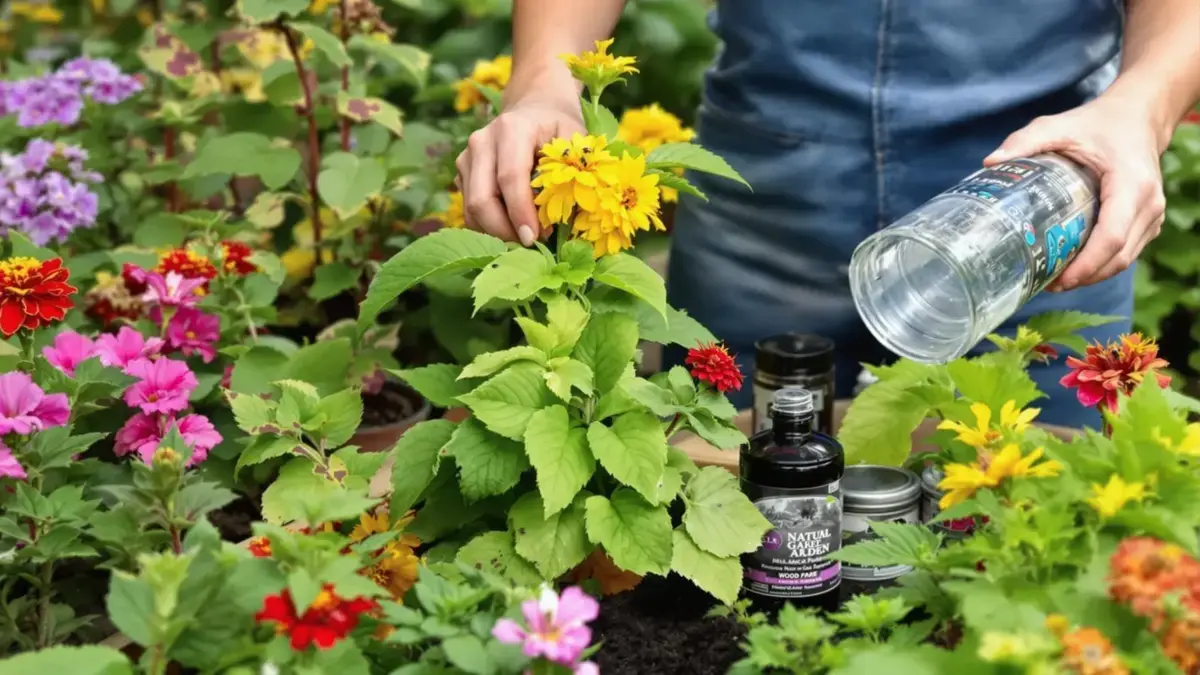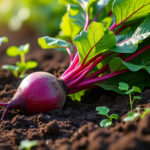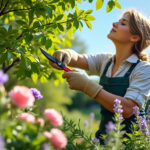Aphids, true scourges for gardeners, compromise the health of many plants. In the face of this threat, adopting natural anti-aphid treatments provides an effective solution, offering an alternative to chemical products. Among the recommended methods, baking soda stands out, allowing for a simple mixture to combat these pests. Other techniques, such as nettle purée and wood ash, also have notable advantages.
Essential Information
- Aphids: major pests in the garden for many plants.
- Natural solutions: alternative treatments to chemical products.
- Effective methods including baking soda, vinegar, and black soap.
- The importance of natural predators like ladybugs to control their population.
Aphids, pests in the garden
Aphids pose a real threat to many plants in the garden. These small insects, although often tiny in size, can cause significant damage to leaves, stems, and flowers, thus compromising the health and beauty of your vegetation. Their presence can lead to weakening of the plants, even death if no action is taken.
Natural anti-aphid treatments
In the face of this invasion, many people turn to chemical treatments. However, there are alternative solutions that are effective and environmentally friendly. Using natural anti-aphid treatments not only helps preserve the health of your plants but also protects the ecosystem of your garden.
Using baking soda
Among these solutions, baking soda proves to be an excellent ally. To use it, simply mix 1 tablespoon of baking soda in 1 liter of water, along with 3 tablespoons of soap. This mixture effectively repels aphids without harming other beneficial insects.
Vinegar as an option
Vinegar is another option to consider. By spraying a mixture of 5 tablespoons of vinegar diluted in 2 liters of water on the affected plants, you can deter aphids from settling. This method is simple and effective, while also economically affordable.
Water jet
A more mechanical method involves using a powerful water jet. By directing a strong stream of water onto infested plants, you can eliminate a large portion of the aphids. It is a quick approach that requires no chemicals and can be done regularly to prevent a new infestation.
Nettle purée
Nettle purée is another solution highly appreciated by gardeners. To prepare it, simply macerate 1 kg of nettles in 10 liters of water, then filter the mixture before spraying it on the plants. This natural remedy not only acts as a repellent against aphids but also nourishes your plants with nutrients.
Wood ash
Wood ash can also be used to get rid of aphids. By spreading it over the colonies, it creates a barrier that repels these pests. This method is eco-friendly and helps enrich the soil with minerals.
Black soap
Finally, black soap is a last resort option to prioritize in extreme cases. It is advisable to dilute 20 g of soap in 1 liter of warm water and spray this mixture on infested plants. Although effective, it is recommended to use it sparingly to avoid damaging the plants.
Repellent plants
To prevent the appearance of aphids, certain repellent plants can be cultivated around your garden. Marigold, lavender, mint, thyme, and savory are examples of plants that discourage these pests while bringing beauty to the garden.
Nasturtium
Nasturtium is a particularly interesting plant because, by attracting aphids, it keeps them away from more delicate plants. This diversion technique helps protect your favorite plants while maintaining a productive gardening space.
Natural predators
It is also essential to encourage the presence of natural predators such as ladybugs, lacewings, hoverflies, and earwigs. These insects play a crucial role in regulating aphid populations. By promoting biodiversity, you create a balanced environment that limits the impact of pests.
Earwig shelter
To attract earwigs, you can create a shelter using a clay pot filled with straw. By providing a place where these predators can hide, you enhance their chances of settling and contributing to the management of aphid populations in your garden.
Importance of reducing ants
The fight against ants is also crucial, as they often farm aphids for their own benefit. To do this, it is advisable to use ant barrier tapes around the bases of plants to prevent their ascent and thus protect your vegetation from aphids.
Aphid reproduction cycle
Finally, it is important to be aware of the aphid reproduction cycle. Females can produce nymphs without the need for males, which means that an infestation can develop rapidly. Understanding this cycle is essential for implementing effective control strategies.








